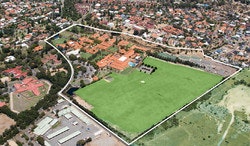Year 12 Japanese: Second Language ATAR Course
The Year 12 syllabus is divided into two units (Units 3 and 4), which are delivered as a pair. The notional time for the pair of units is 110 class contact hours.
Unit 3
This unit focuses on 若(わか) い 旅行者(りょこうしゃ) (Young travellers). Through the two topics: Travel 旅行 and Part-time jobs and money アルバイトとお金, students extend and refine their communication skills in Japanese and gain a broader and deeper understanding of the language and culture.
|
LEARNING CONTEXTS
|
TOPICS
|
|
The individual
Students explore aspects of their personal world, aspirations, values, opinions, ideas, and relationships with others. They also study topics from the perspectives of other people.
|
Travel 旅行
Students reflect on their own travel experiences, including highlights and problems, travel preparations: what to take, booking accommodation, transport options and sight-seeing.
Part-time jobs and money アルバイトとお金
Students reflect on part time work, pocket money and saving and spending money.
|
|
The Japanese-speaking communities
Students explore topics from the perspectives of individuals and groups within those communities, or the communities as a whole, and develop an understanding of how culture and identity are expressed through language.
|
Travel 旅行
Students explore travel in Japanese-speaking communities: preparation, accommodation, transport options, places of interest and typical travel experiences.
|
|
The changing world
Students explore information and communication technologies and the effects of change and current issues in the global community.
|
Travel 旅行
Students consider the importance of travel for young people.
|
Unit 4
This unit focuses on かこと 未来(みらい) (Reflections and horizons). Through the three topics: This year and beyond 今年と 将来(しょうらい), Youth events and pathways 若者(わかもの)の 行事(ぎょうじ)と 進路(しんろ) and Future plans 未来(みらい), students extend and refine their communication skills in Japanese and gain a broader and deeper understanding of the language and culture.
|
LEARNING CONTEXTS
|
TOPICS
|
|
The individual
Students explore aspects of their personal world, aspirations, values, opinions, ideas and relationships with others. They also study topics from the perspectives of other people.
|
This year and beyond今年(ことし)と将来(しょうらい)
Students reflect on significant events of the year and school life: school balls, graduation, obtaining a driver's license and their future plans.
|
|
The Japanese-speaking communities
Students explore topics from the perspectives of individuals and groups within those communities, or the communities as a whole, and develop an understanding of how culture and identity are expressed through language.
|
Youth events and pathways若者(わかもの)の 行事(ぎょうじ)と 進路(しんろ)
Students explore important events and future plans for young people in Japanese-speaking communities.
|
|
The changing world
Students explore information and communication technologies and the effects of change and current issues in the global community.
|
Future plans未来(みらい)
Students consider the education and career pathways available to young people in a technological world and how the study of Japanese can influence their choices.
|
School-based assessment
The Western Australian Certificate of Education (WACE) Manual contains essential information on principles, policies and procedures for school-based assessment that needs to be read in conjunction with this syllabus.
Teachers design school-based assessment tasks to meet the needs of students. The tables below provide details of the assessment types for the Japanese: Second Language ATAR Year 12 syllabus and the weighting for each assessment type.
Assessment table practical component - Year 12
|
TYPE OF ASSESSMENT
|
WEIGHTING
|
TO SCSA
|
WEIGHTING FOR COMBINED MARK
|
|
Oral communication
Interaction with others to exchange information, ideas, opinions and/or experiences in spoken Japanese. This can involve participating in an interview, a conversation and/or a discussion. Typically these tasks are administered under test conditions.
|
50%
|
100%
|
30%
|
|
Practical (oral) examination
Typically conducted at the end of each semester and/or unit and reflecting the examination design brief for this syllabus.
|
50%
|
Assessment table written component - Year 12
|
TYPE OF ASSESSMENT
|
WEIGHTING
|
TO SCSA
|
WEIGHTING FOR COMBINED MARK
|
|
Response: Listening
Comprehension and interpretation of, and response in English to, a range of Japanese spoken texts, such as interviews, announcements, conversations and/or discussions. Typically these tasks are administered under test conditions.
|
15%
|
100%
|
70%
|
|
Response: Viewing and reading
Comprehension and interpretation of, and response in English to, a range of Japanese print and audiovisual texts, such as emails, blog postings, films/television programs (excerpts), letters, reviews, articles, notes and/or messages. Typically these tasks are administered under test conditions.
|
20%
|
|
Written communication
Production of written texts to express information, ideas, opinions and/or experiences in Japanese. This can involve responding to a stimulus, such as an email, a blog posting, a letter, an image or an invitation; or writing a text, such as a journal/diary entry, an account, a letter, a review, a summary and/or an email. Typically these tasks are administered under test conditions.
|
15%
|
|
Written examination
Typically conducted at the end of each semester and/or unit and reflecting the examination design brief for this syllabus.
|
50%
|
